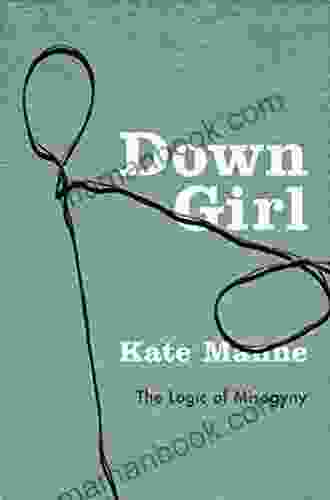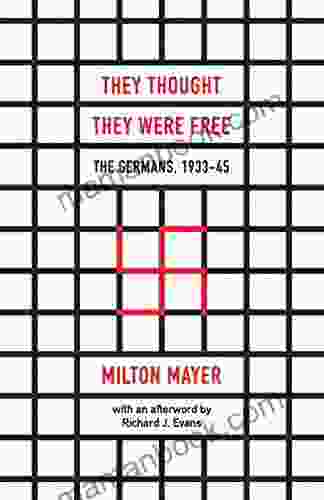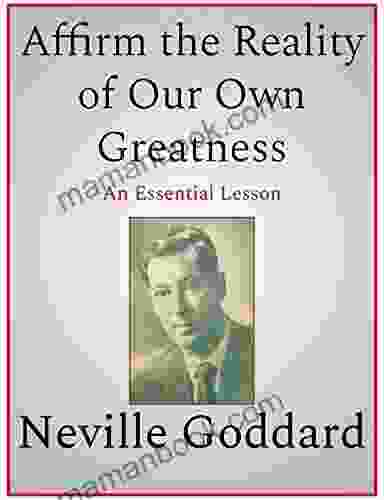They Thought They Were Free: The Germans 1933-1945

In the aftermath of World War II, many people were left wondering how it was possible for the German people to have allowed the rise of the Nazi regime and the atrocities that followed. In his groundbreaking book, "They Thought They Were Free," Milton Mayer attempts to answer this question by examining the lives of ordinary Germans living in the town of Ludwigshafen am Rhein during the years leading up to and during the Nazi era.
Mayer's book is not a traditional history of the Third Reich. Instead, it is a collection of interviews with Ludwigshafen residents who witnessed firsthand the rise and fall of the Nazi regime. Through these interviews, Mayer provides a unique and deeply personal account of how the Nazis came to power and how they were able to maintain their grip on Germany for so long.
4.6 out of 5
| Language | : | English |
| File size | : | 1573 KB |
| Text-to-Speech | : | Enabled |
| Screen Reader | : | Supported |
| Enhanced typesetting | : | Enabled |
| X-Ray | : | Enabled |
| Word Wise | : | Enabled |
| Print length | : | 392 pages |
| Lending | : | Enabled |
One of the most striking things that emerges from Mayer's interviews is the sense of normalcy that prevailed in Ludwigshafen during the early years of the Nazi regime. Many people who lived through this period recall that there was little outward sign of the atrocities that were being committed against Jews and other minorities. In fact, many Germans genuinely believed that the Nazis were making Germany a better place.
As the Nazi regime became more entrenched, however, the atmosphere in Ludwigshafen began to change. The Gestapo became increasingly active, and more and more people were arrested and sent to concentration camps. The Jewish population of the town was decimated, and many of those who remained were forced to live in hiding.
Despite the growing repression, there were still many Germans who refused to give up hope. Mayer's interviews reveal that there were pockets of resistance throughout Germany, even in the darkest days of the Nazi era. These brave individuals risked their lives to help Jews and other persecuted groups, and they kept alive the flame of hope for a better future.
"They Thought They Were Free" is a powerful and moving account of the rise and fall of the Third Reich. Mayer's interviews provide a unique and deeply personal perspective on this dark chapter in human history. The book is a reminder that even in the darkest of times, there is always hope for a better future.
Key Themes
The following are some of the key themes that emerge from Mayer's book:
- The banality of evil: Mayer argues that the rise of the Nazi regime was not due to the actions of a few evil men, but rather to the apathy and indifference of ordinary Germans. He writes, "The Germans were not all Nazis. But they were all responsible for Hitler."
- The power of propaganda: The Nazis were masters of propaganda, and they used it to great effect to manipulate the German people. Mayer shows how the Nazis used the media, education, and even the churches to create a climate of fear and hatred that made it possible for them to seize power.
- The importance of resistance: Even in the darkest of times, there were still Germans who refused to give up hope. Mayer's interviews reveal that there were pockets of resistance throughout Germany, even in the darkest days of the Nazi era. These brave individuals risked their lives to help Jews and other persecuted groups, and they kept alive the flame of hope for a better future.
Legacy
"They Thought They Were Free" has had a profound impact on our understanding of the rise and fall of the Nazi regime. The book has been translated into more than 20 languages and has sold millions of copies worldwide. It is considered one of the most important works of non-fiction written about the Holocaust.
The book has also been used as a teaching tool in schools and universities around the world. It is a powerful reminder of the dangers of prejudice and hatred, and it is a call to action for all of us to stand up against tyranny and injustice.
"They Thought They Were Free" is a must-read for anyone who wants to understand the rise and fall of the Third Reich. Mayer's interviews provide a unique and deeply personal perspective on this dark chapter in human history. The book is a reminder that even in the darkest of times, there is always hope for a better future.
4.6 out of 5
| Language | : | English |
| File size | : | 1573 KB |
| Text-to-Speech | : | Enabled |
| Screen Reader | : | Supported |
| Enhanced typesetting | : | Enabled |
| X-Ray | : | Enabled |
| Word Wise | : | Enabled |
| Print length | : | 392 pages |
| Lending | : | Enabled |
Do you want to contribute by writing guest posts on this blog?
Please contact us and send us a resume of previous articles that you have written.
 Top Book
Top Book Novel
Novel Fiction
Fiction Nonfiction
Nonfiction Literature
Literature Paperback
Paperback Hardcover
Hardcover E-book
E-book Audiobook
Audiobook Bestseller
Bestseller Classic
Classic Mystery
Mystery Thriller
Thriller Romance
Romance Fantasy
Fantasy Science Fiction
Science Fiction Biography
Biography Memoir
Memoir Autobiography
Autobiography Poetry
Poetry Drama
Drama Historical Fiction
Historical Fiction Self-help
Self-help Young Adult
Young Adult Childrens Books
Childrens Books Graphic Novel
Graphic Novel Anthology
Anthology Series
Series Encyclopedia
Encyclopedia Reference
Reference Guidebook
Guidebook Textbook
Textbook Workbook
Workbook Journal
Journal Diary
Diary Manuscript
Manuscript Folio
Folio Pulp Fiction
Pulp Fiction Short Stories
Short Stories Fairy Tales
Fairy Tales Fables
Fables Mythology
Mythology Philosophy
Philosophy Religion
Religion Spirituality
Spirituality Essays
Essays Critique
Critique Commentary
Commentary Glossary
Glossary Bibliography
Bibliography Index
Index Table of Contents
Table of Contents Preface
Preface Introduction
Introduction Foreword
Foreword Afterword
Afterword Appendices
Appendices Annotations
Annotations Footnotes
Footnotes Epilogue
Epilogue Prologue
Prologue Douglas A Blackmon
Douglas A Blackmon Judith M Dunkerly
Judith M Dunkerly Kathy A Zahler
Kathy A Zahler Okongor Ndifon
Okongor Ndifon Grace Burke
Grace Burke Ray Lacina
Ray Lacina Deborah Parker
Deborah Parker Sobia Publication
Sobia Publication Eracle Soldati
Eracle Soldati Lizzie Huxley Jones
Lizzie Huxley Jones Ann Nocenti
Ann Nocenti Marcus Samuelsson
Marcus Samuelsson Vishah Hussain
Vishah Hussain Jody Long
Jody Long Svingen And Pedersen
Svingen And Pedersen Dr Edward Joseph
Dr Edward Joseph Guy De Maupassant
Guy De Maupassant Jared Wynn
Jared Wynn Lyn Hejinian
Lyn Hejinian Marie Howley
Marie Howley
Light bulbAdvertise smarter! Our strategic ad space ensures maximum exposure. Reserve your spot today!

 Mike HayesYour Ultimate Guide To Get Out Of Debt, Fix Your Credit And Achieve Financial...
Mike HayesYour Ultimate Guide To Get Out Of Debt, Fix Your Credit And Achieve Financial... J.R.R. TolkienFollow ·11.1k
J.R.R. TolkienFollow ·11.1k Jaylen MitchellFollow ·7.2k
Jaylen MitchellFollow ·7.2k Xavier BellFollow ·4.1k
Xavier BellFollow ·4.1k Jared NelsonFollow ·2.4k
Jared NelsonFollow ·2.4k Tim ReedFollow ·2k
Tim ReedFollow ·2k Wade CoxFollow ·14.9k
Wade CoxFollow ·14.9k Easton PowellFollow ·17.8k
Easton PowellFollow ·17.8k Amir SimmonsFollow ·8k
Amir SimmonsFollow ·8k

 Ernest Powell
Ernest PowellBenefits of Corporal Punishment: A Review of the...
Corporal punishment is a form of physical...

 Bobby Howard
Bobby HowardThe Development and Significance of African American...
African American...

 Guy Powell
Guy PowellDown Girl: The Logic of Misogyny - A Comprehensive...
In her groundbreaking work,...

 Forrest Blair
Forrest BlairThe Bikini Changing Room: A Micro Mini Romance
In the heart of...
4.6 out of 5
| Language | : | English |
| File size | : | 1573 KB |
| Text-to-Speech | : | Enabled |
| Screen Reader | : | Supported |
| Enhanced typesetting | : | Enabled |
| X-Ray | : | Enabled |
| Word Wise | : | Enabled |
| Print length | : | 392 pages |
| Lending | : | Enabled |














